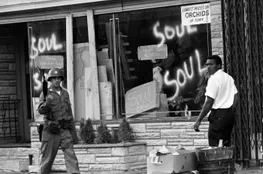Since being founded in 1903, Kraft has become one of the biggest food manufacturing companies in the United States. After merging with Heinz in 2015, the company now owns over 200 brands, each of which produces a variety of products. While this huge array means Kraft is now worth over $40 billion, it also all but guarantees that the company will produce and distribute batches of faulty products from time to time.
Recalls are a reality for any food manufacturer. Bacteria, foreign materials, and mislabeling are constant risks in the business. While all companies strive to create safe products every time, the reality is that they'll probably fall short on at least one occasion. In these instances, companies hope that recalls are executed quickly and efficiently so no one is sickened or injured by the offending products. They also hope that the total amount of faulty food requiring recalling is small to minimize costs.
Unfortunately for Kraft, while its products rarely make people ill, the company has a history of issuing recalls that are huge in scope.
- In the summer of 2015, Kraft issued a recall for 36,000 cases of its Kraft Singles American cheese slices after it was discovered that a piece of plastic film remained attached to the cheese after the wrapping had been removed. Ten customers complained about this issue with three stating that the plastic film had made them choke. This recall expanded just over a month later when two more customers complained of choking on the plastic film, bringing the total up to 371,000 cases. To further complicate matters, many of these cheese slices had been shipped abroad, causing considerable losses for Kraft.
- August 2022 saw Kraft issue a voluntary recall for 5,760 cases of Capri Sun Wild Cherry Flavored Juice Drink Blend. This recall was initiated after several customers complained about the product having a different taste than usual. It was discovered that the beverage contained some of the diluted cleaning solution used to clean the production equipment. Approximately 230,400 Capri Sun pouches were included in this recall. PR experts suggested that due to the modest scale of this recall, any reputational damage would be modest and likely temporary.
- One of the largest recalls in Kraft's history took place in May 2014 when the company issued a voluntary recall of 34 cottage cheese products under four different brands. This recall involved 1.2 million cases of cottage cheese made with ingredients that might have been stored at incorrect temperatures, putting the products at risk of carrying harmful pathogens. At least 7.2 million and up to 14.4 million tubs of cottage cheese were included. The promptness of the recall meant that no illnesses were reported, thus minimizing damage to Kraft's reputation.
- In March 2015, Kraft had to recall 242,000 cases of its iconic macaroni and cheese after eight customers found pieces of metal in their food. A total of approximately 6.5 million boxes of macaroni and cheese were recalled. The company traced the problem back to a piece of stainless steel that got wedged in equipment, leading to small metal pieces potentially falling into the product. Fortunately, no injuries were reported.
- In January 2014, Truitt Brothers Inc., a manufacturer of Kraft products, issued a recall for Velveeta Cheesy Skillets due to the label failing to list soy as an allergen. Approximately 1.77 million pounds of the product were recalled, with around 339,814 pounds actually recovered. Consuming soy while allergic can cause severe reactions, which is why swift action was taken.
- In October 2013, 735,000 cases of string cheese under Kraft and Polly-O brands were recalled after customers complained that the food was spoiling before its best-by date. Production and distribution at the involved factory ceased as Kraft worked to resolve the issue. The widespread distribution of the products resulted in significant logistical efforts for the recall.
- November 2019 saw Kraft issue another recall for its cottage cheese products under the Breakstone's brand due to contamination with hard red plastic and metal. Six customers complained, leading to a recall of 9,500 cases. The recall was complex and costly due to distribution across the United States and Latin America, but no injuries were reported.
- In August 2015, Kraft recalled over 2 million pounds of Oscar Mayer turkey bacon after complaints of the product spoiling before the best-by date. Despite the widespread distribution, Kraft recovered over 755,000 pounds of the faulty products. Some customers reported illness after consuming the turkey bacon.
- In July 2018, a recall was issued for 7,000 cases of Taco Bell Salsa Con Queso Mild Cheese Dip due to the product having a tendency to split, which could facilitate the growth of clostridium botulinum, the bacteria responsible for botulism. Kraft's preemptive action in recalling the product prevented any associated illnesses.
- In April 2014, Kraft recalled around 96,000 pounds of Oscar Mayer Classic Wieners because the packages contained Classic Cheese Dogs, leading to an undeclared milk allergen. The mistake was traced back to a factory in Missouri. No allergic reactions were reported, but the recall added to an already difficult year for Kraft, which included multiple large-scale recalls.
























